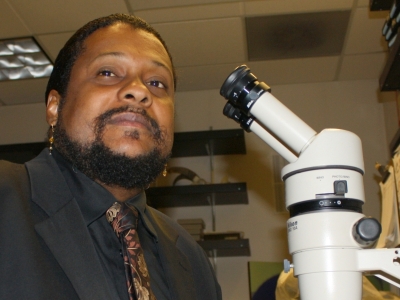One Health One Planet Update: Chemicals of Concern Revisited

Join us for a special free webinar in which Drs. Shanna Swan and Tyrone Hayes discuss the latest on pervasive toxic chemicals in the environment.
In 2018, the second-annual One Health One Planet symposium united thought leaders across disciplines to discuss Chemicals of Concern in the Environment, from routes of exposure and potential impacts to actions that the public can take to minimize risk. On Tues., Feb. 23, two speakers from this symposium will join us to discuss the latest news on this important topic. Shanna H. Swan, Ph.D., M.S., will discuss findings from her new book, Count Down: How Our Modern World Is Threatening Sperm Counts, Altering Male and Female Reproductive Development, and Imperiling the Future of the Human Race, while Tyrone Hayes, Ph.D., will discuss his latest studies on the effects of chemicals on the genetic sex differentiation of animals. The discussion will be moderated by Terrence J. Collins, Teresa Heinz Professor in Green Chemistry and Director of the Institute for Green Science at Carnegie Mellon University and introduced by Richard V. Piacentini, President and CEO of Phipps.
How to Attend
Attendance is free, but R.S.V.P.s must be received in advance. Upon registration, you will immediately receive a Zoom link to join the event on Feb. 23 at 2 p.m. ET, 11 a.m. PT.

About Dr. Shanna Swan
Shanna H. Swan received a B.A. in mathematics from the City University of New York, an M.S. in biostatistics from Columbia and a Ph.D. in statistics from the University of California Berkeley. Shanna spent 18 years working for the California Department of Health Services, where she responded to community concerns about toxic exposures and their reproductive effects by conducting studies to address those concerns. After serving on the National Academy of Science Committee on Hormonally Active Agents in the Environment, Shanna left government service to pursue an academic career. Her work at that time focused on the question of declining sperm count, an interest that she has pursued over the past 20 years, most recently with the publication in 2017 of the most comprehensive and definitive study to date on this question. In the intervening years, she simultaneously conducted large pregnancy cohort studies to examine the developmental effects of widespread exposure to nonpersistent pollutants (such as plasticizers) and, more recently, over-the-counter analgesics. Her research focuses on the effects of prenatal exposure to these chemicals on reproduction and neurodevelopment, with a particular interest in sexually dimorphic endpoints and identification of the critical windows during which these developing systems are most sensitive to disruption. Since 2011 she has been a professor of environmental medicine and public health at the Icahn School of Medicine at Mount Sinai, New York, NY.

About Dr. Tyrone Hayes
Tyrone B. Hayes was born and raised in Columbia, South Carolina, where he developed his love for biology. He received his Bachelor’s degree from Harvard University in 1989 and his Ph.D. from the Department of Integrative Biology at the University of California, Berkeley in 1993. After completing his Ph.D., he began post-doctoral training at the National Institute of Child Health and Human Development, National Institutes of Health and the Cancer Research Laboratories at UC Berkeley (funded by the National Science Foundation), but this training was truncated when he was hired as an Assistant Professor at UC Berkeley in 1994. He was promoted to associate professor with tenure in 2000 and to full professor in 2003. Hayes’ research focuses on developmental endocrinology with an emphasis on evolution and environmental regulation of growth and development. For the last fifteen years, the role of endocrine disrupting contaminants, particularly pesticides, has been a major focus. Hayes is interested in the impact of chemical contaminants on environmental health and public health, with a specific interest in the role of pesticides in global amphibian declines and environmental justice concerns associated with targeted exposure of racial and ethnic minorities to endocrine disruptors and the role that exposure plays in health care disparities.
More Events You’ll Enjoy
-
As Long as the Grass, an exhibit by Lindsey french
Now Open
Experience a new way of seeing plants in this multimedia exhibit by Lindsey french.





